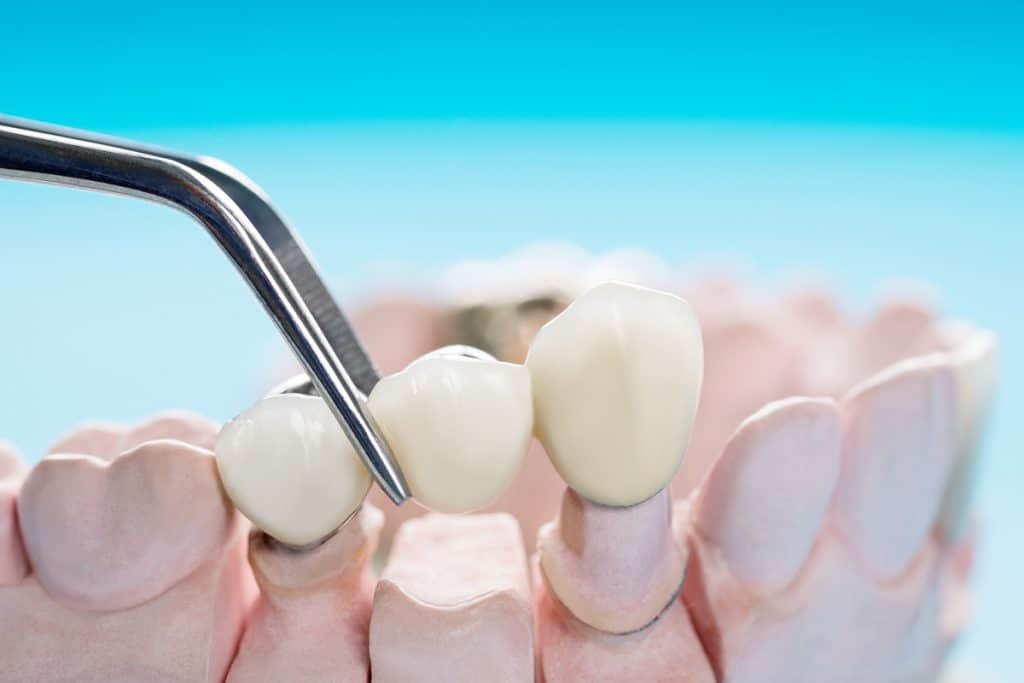How Long Do Dental Bridges Last?

For those who suffer from missing teeth, obtaining a dental bridge can be an excellent choice for enhancing both your smile and overall oral well-being.
You may be curious as to how long its effects will last following installation: properly managed bridges typically maintain their durability from anywhere between five and 15 years–sometimes even longer. The material components involved, effective at-home cleaning methods tailored specifically towards bridges (i.e., brushing/flossing), and the placement location within the mouth can all affect an individual's specific circumstances.
In this informative piece, we'll take a closer look into what factors influence these timeframes regarding dental bridges. Our objective is to offer helpful tips for maintaining customized bridges while preventing future damage or needing replacement anytime soon after installation.
Factors That Affect the Lifespan of Dental Bridges
Dental bridges are a commonly chosen solution for replacing missing teeth, but their lifespan can vary due to several factors. One crucial factor is the choice of material for constructing the bridge. Various options are available, including porcelain, ceramic, and metal alloy. Porcelain and ceramic bridges are renowned for their durability and natural appearance, although they may be more susceptible to chipping or cracking. On the other hand, metal alloy bridges are generally sturdier but may not provide the same level of aesthetic appeal.
Another aspect that significantly influences the lifespan of a dental bridge is your oral hygiene practices. Maintaining good oral hygiene, such as regular brushing and flossing, can help prevent decay and damage to both the bridge and the adjacent teeth. Neglecting oral hygiene can lead to gum disease, which in turn can cause the bridge to loosen or even dislodge.
The placement of the bridge also plays a role in its longevity. Bridges positioned in areas of the mouth subject to substantial pressure and wear, such as the back molars, may not endure as long as those placed in less demanding regions. Furthermore, bridges that are improperly fitted or inadequately anchored to the neighboring teeth may be more prone to damage and may require earlier replacement.
Average Lifespan of Dental Bridges
With adequate care, dental bridges typically have an average lifespan of five to 15 years or even longer. Notably, porcelain and ceramic bridges often outlast metal alloy bridges, with some enduring for 20 years or more. Nevertheless, the specific longevity of your bridge relies on various factors, including the chosen material, your oral hygiene practices, and the positioning of the bridge.
To maximize the lifespan of your bridge, it is crucial to maintain regular dental check-ups, as they enable monitoring of its condition and early identification of any potential issues. Seeking professional guidance from your dentist regarding proper care is also essential for ensuring the long-lasting durability of your bridge.
How to Maintain and Care for Dental Bridges
To ensure the long-term durability of your dental bridge, proper care and maintenance are crucial. Consider the following tips:
- Brush your teeth at least twice a day using a soft-bristled toothbrush. Thoroughly clean the bridge and the adjacent teeth to eliminate any food particles or plaque.
- Make flossing a daily habit to remove debris or plaque from between the teeth and beneath the bridge.
- Incorporate an antibacterial mouthwash into your oral hygiene routine to freshen your breath and eliminate bacteria.
- Avoid consuming hard or sticky foods that could potentially damage the bridge or dislodge it.
- Regularly schedule check-ups and cleanings with your dentist to monitor the condition of your bridge and detect any issues at an early stage.
By following these guidelines, you can promote the prolonged lifespan and overall well-being of your dental bridge.
Signs That Your Dental Bridge Needs to Be Replaced
Even with proper care and maintenance, dental bridges may need to be replaced over time. Here are some signs that your bridge may need to be replaced:
- The bridge is loose or wobbly.
- The bridge is cracked, chipped, or broken.
- The surrounding teeth are decayed or damaged.
- The bridge is causing pain or discomfort.
- The bridge no longer fits properly.
Dental Bridges in Venice, FL
Dental bridges represent a valuable investment in your oral health, offering a durable solution for missing teeth. By understanding the factors that influence the lifespan of your bridge and adhering to appropriate care and maintenance practices, you can maximize its longevity.If you're considering a dental bridge or need to replace an existing one, contact us at 915-585-2020 to explore your options and find the best solution for your individual needs and circumstances.
